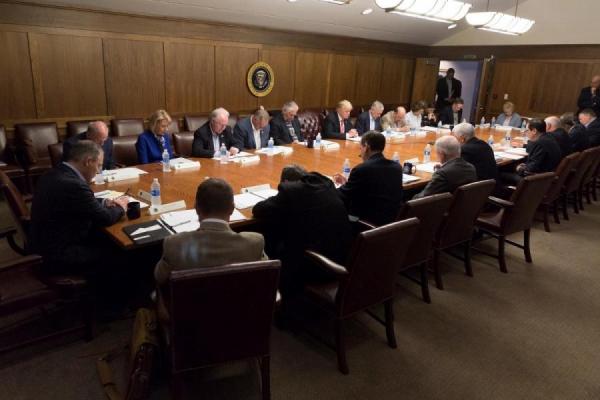
How would Alma have felt if, when he reunited with the sons of Mosiah, they were no longer part of the Church?
Over the past few months, I’ve met with several longtime friends who have left the Church. As we shared meals and chatted, I couldn’t help but think about Alma 17. In that chapter, Alma the Younger runs into his old pals, the sons of Mosiah. Below is a description of their encounter:
“And now it came to pass that as Alma was journeying from the land of Gideon southward, away to the land of Manti, behold, to his astonishment, he met with the sons of Mosiah journeying towards the land of Zarahemla. Now these sons of Mosiah were with Alma at the time the angel first appeared unto him; therefore Alma did rejoice exceedingly to see his brethren; and what added more to his joy, they were still his brethren in the Lord.” (emphasis added)
I’m not one to wear my religion on my sleeve, and when I talked with my friends, we largely avoided topics of faith. Still, I came away from my time with them with a vague sense of sadness. While we were still buddies and still shared many of the same interests, there was something missing – there wasn’t quite the connection we once had.
What caused these feelings of estrangement? You could argue that it was just the passage of time – after all, we hadn’t seen each other in ages. You could also argue that it was simply encountering each other in a different place and context – we weren’t meeting in the same city we had once inhabited. But I would argue that our disconnect was a product of something else – of our knowledge, unspoken yet painfully palpable, that our now-different beliefs had fundamentally altered the essence of who we were and the nature of our relationship.
Don’t get me wrong – I don’t blame anyone for leaving the Church. There is much in its history and the current state of things to be upset about or get hung up on. Just last month, as I read a book about the Epicurean origins of the philosophy of America’s Founding Fathers, I couldn’t help but notice the many startling parallels between Enlightenment Deist thought and the contents of the supposedly ancient Mormon canon. Of course, approaching my reading from a faithful perspective, I chalked up these similarities to the timelessness of truth and, possibly, to an “inspiration” as opposed to a “transcription” model of Joseph Smith’s translation process. But I could easily see how a skeptical mind, and especially a cynical mind, could view such “borrowing” and see it as evidence of the Book of Mormon’s nineteenth-century, as opposed to ancient, origins.
Even though I can understand why someone might grow disaffected with the LDS Church, that doesn’t make my sorrow at their departure any less poignant. To be part of the Church, to be “Mormon,” is an identity-defining experience. You subscribe to a set of beliefs that much of the world finds ridiculous, and you join a people whose tight-knit solidarity has been forged by almost two centuries of persecution and discrimination. You grow up singing the same children’s songs, attending Scout camps, sitting through testimony meetings, and performing service projects. You join your fellow Mormons once a month in fasting for the poor, and you breathe life into one of the world’s last “mystery religions” by attending ceremonies in its temples.
Often, you’ve spent eighteen months to two years immersed in a somewhat monastic experience, pledging to abstain from many worldly pleasures, like television, movies, and dating, while spending almost every waking hour trying to improve the lives of others. You’ve also endured the uncomfortable questions when, at a work happy hour or a morning meet-up, you’re the only one nursing a soda or sipping from a hot chocolate. And let’s not forget the ever-present sacrifice you make when you donate one-tenth of each paycheck to the Church.
Let’s face it – Mormonism is an identity-defining experience. It’s not just a set of beliefs, though that is the foundation of the Mormon experience. It’s a history, a culture, a people – some might even argue an ethnicity. And though someone doesn’t have to abandon the historical and cultural trappings of Mormonism when they choose to withdraw their faith in the Church’s doctrines, their rejection of the very beliefs that created Mormonism and define what it is seems, to some extent, like they’re doing just that. It’s like claiming to be Christian while denying that a man named Jesus Christ ever walked the earth or labeling oneself a Buddhist while asserting that Siddhartha never lived.
I don’t mean this post to be a condemnation of my friends and acquaintances who have left the Church. Like I said, I fully understand that people have very good reasons for disembarking from the “old ship Zion.” Rather, this post should taken as an expression of grief and, to some extent, mourning. I empathize with what Alma may have felt if, rather than finding the sons of Mosiah still strong in the faith, he had discovered that they had abandoned their beliefs. These were people with whom he had shared soul-shaking, life-altering experiences, and now they had turned their backs on that. Alma is described as “rejoicing exceedingly” when he came upon his long-lost brethren – I can only imagine the sorrow that would have enveloped him if they were no longer his “brethren in the Lord.”












